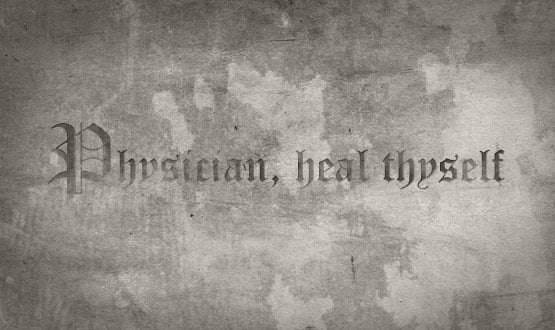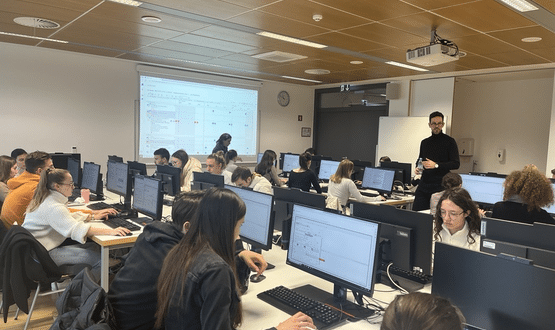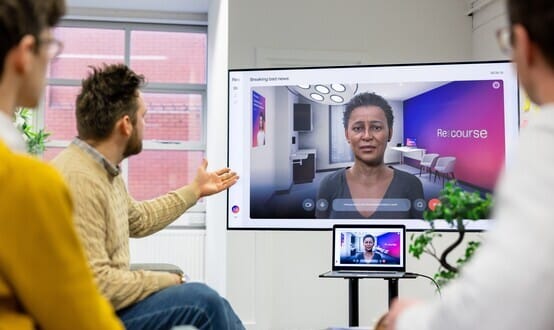Physician heal thyself
- 14 March 2013

In the absence of systematic use of knowledge tools, “we are all playing with happenstance,” Dr Lawrence Weed told the HIMSS 2013 conference in New Orleans.
Dr Weed is an emeritus professor of medicine at the University of Vermont and inventor of the problem orientated medical record, which revolutionised medical record keeping from the late 1960s.
The development of POMR profoundly influenced the development of electronic medical records. Dr Weed also subsequently developed Problem – Knowledge couplers to link knowledge to care.
Despite this, the iconic 89-year old told his audience of leading US physicians that the medical profession had still not systematically adopted tools to manage medical knowledge.
In a striking image, he said this left it, in effect, trying to memorise a volume of data equivalent to the New York telephone directory.
Instead, the man who many see as the father of the modern EMR called for systemised knowledge tools to be universally adopted and used, so that doctors focus on skills rather than rote learning.
Many deaths, too little outrage
Dr Weed argued that medicine could not afford to carry on as it was doing. “There are an estimated 500,000 deaths a year caused by medicine, but where is the outrage – there is no outrage,” he told the Physicians’ IT Symposium that forms part of the annual HIMSS conference.
“People ask me ‘what do you think about this?’ Well, doctors have to assume some responsibility. Medicine is an industry without an accounting system. Of course we have these mistakes, we don’t have a system.
“If a patient comes to you and says they have a pain in the belly, they think you know all 70-odd causes of belly pain.
“They think you know all the values and all the things you should check and [that you can] keep score in your head, and then say ‘you should do such and such’. But not a doctor in this room can do that. So we can’t do what the public thinks.”
Instead, he issued a more direct challenge to his audience, asking: “How many mistakes will you have in your practice?” He suggested that few would know. “We’ve all gotten away with it for so long, as you can’t read doctors’ handwriting and it’s a busy office.”
Teaching behaviour
Dr Weed said he didn’t want to imply that medicine had made no progress. However, he suggested that other industries had gone further.
“Planes are great too,” he joked. “But imagine if a pilot said ‘I know most of the instruments, but not all of them… but don’t worry, we get there most of the time’.”
The difference, he argued, was not just the use of technology but discipline and adherence to rules. “Pilots are willing to undergo discipline because the pilot has to get in the plane.
“As a surgeon, you don’t have to get on the operating table. It’s sad if you make a mistake, but you’ll forget about it as you’ll soon be making new mistakes.”
Dr Weed said he first started to be aware of the problem when teaching at University. “I began to notice a fantastic difference between the way the department handled medical students and graduate research students.
“A researcher has to have a core of behavior; very disciplined and thorough. But with medical students we taught a core of knowledge, not behavior.
“Doctors are developing a discipline of not being very thorough or reliable. If you train to be a doctor, you won’t use knowledge rigorously, but you will get authority. We should always teach a core behavior, not knowledge. That is always forgotten.”
Indeed, he even argued that medical schools should really be teaching the captains of football teams. “We should select kids with great hands on skills not memorisers; people who would currently never get into med school.”
Take a history, use the proper tools
Dr Weed argued the core skill for medicals was learning how to take a really good history. After that, he argued that technology was needed to help them apply the knowledge needed in the situation in front of them.
Too often, he said, doctors diagnose on the basis of guesses or instinct rather than rigorous use of knowledge tools. Quoting Francis Bacon he said that too often doctors “allow hypotheses to take hold of their mind”.
Dr Weed went on to quote philosopher Karl Popper, to illustrate his central thesis. “Karl Popper said there is world one, world two and world three.
“World one is everything out there. World two is what you think is out there. And world three is you get it on paper where others can use it and check it. Medicine is stuck in world two.”
The priority, he said, must be not on teaching knowledge but on developing rigorous knowledge tools that get medicine into world three.
At the same time, he added, it is important to train doctors to use them effectively. “If you are going to use a tool, use it properly. If I give everyone in this room a chisel and marble not all would be Michelangelo; half would have cut fingers.”
Can’t afford not to do it
Before getting a standing ovation from the audience, Dr Weed concluded: “Medicine is a 2.5 trillion industry with no accounting system – and it’s killing us economically.”




